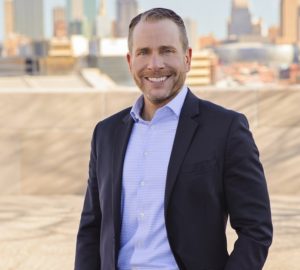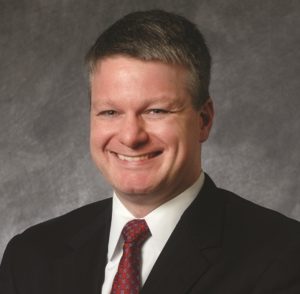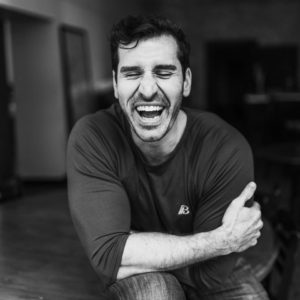Denis O’Brien [0:37]
Welcome to Episode 216, Money Tree Investing. Hey money clan, a warm welcome to the Chain of Wealth podcast. I’m your host, Denis O’Brien.
Katie Welsh [0:48]
And I’m Katie Welsh.
Denis O’Brien [0:49]
So Kate, such a fun conversation with Kirk today.
Katie Welsh [0:53]
I know it was such a good conversation and we actually had like a power session because we were on his podcast, and he was on our podcast. So lots of good podcasting going on over here.
Denis O’Brien [1:5]
Yeah. Nice little recording sesh.
Katie Welsh [1:8]
Yeah.
Denis O’Brien [1:8]
So yeah, definitely check out our episode on the Money Tree Investing podcast. We drop a whole bunch of value bombs. And we chat a lot about Kate’s story and exactly what she went through with her debt.
Katie Welsh [1:19]
Yeah, I think it’ll come out in a couple of weeks.
Denis O’Brien [1:21]
Yeah, I think he said end of the year, if I remember correctly.
Katie Welsh [1:23]
Yeah.
Denis O’Brien [1:23]
Yeah. So definitely cool. Definitely check that out when it does come out. Alright, well, before we dive right in to today’s episode we would love if you guys let us know what you’re up to on Instagram. You can reach us it’s @chainofwealth on Instagram and let us know what your money goals are for the rest of 2019 alright Kate, you ready to dive right in?
Katie Welsh [1:45]
Yeah.
Denis O’Brien [1:46]
Alright, let’s do it.
Voice Over [2:16]
Welcome to Chain of Wealth. Here’s your host Denis inspiring you to begin your journey of financial freedom.
Denis O’Brien [2:0]
Kirk Chisholm is a partner and co founder at Innovative Advisor Group. He has over 20 years of experience as an investment advisor and wealth manager. Welcome Kirk.
Katie Welsh [2:11]
Hey Kirk.
Kirk Chisholm [2:12]
Hey, how’s it going?
Katie Welsh [2:13]
Good. Thanks for coming on the show.
Kirk Chisholm [2:16]
Thanks for having me. This is exciting. We just finished an episode of ours and excited to be interviewed by you now.
Katie Welsh [2:21]
I know So can you tell us a little bit about you? I know you have your podcast to Money Tree Investing.
Kirk Chisholm [2:29]
Yeah, so I run a wealth management company had that company for the last 11 years. I’ve been in the industry for about 20 years, which is great because it’s allowed me to get a lot of experience in the ups and downs of the markets. And, yeah, I also run a podcast as well. The Money Tree Investing podcast where we talk about, just about everything under the sun, from investments debt you know, anything money related a lot of the emotional side of money to, which is also really important.
Katie Welsh [3:3]
Okay, so where did the idea for your podcasts come from? I know a lot of times it comes from certain, like a certain part of your life that you wanted to like have a creative outlet.
Kirk Chisholm [3:13]
So actually a funny story. I’ve been looking to podcast for the last two years, and I’ve hesitated because, as you both know, running a podcast is a organizational and logistical nightmare. Unless you’re you’re gifted in that area, which I’m not. And so I was just guesting on a lot of shows because I didn’t want to run one. And then a friend of mine, Miranda Markwitt had this podcast and decided that she was done. She was just like, I’ve been there done that I’m I’m ready to retire. So she allowed me to take it over for and really have just tried to transform it into kind of the vision of what I wanted to do with podcast. And I think you’re what you’re getting at is really kind of the the story that most people create with a podcast is around their own challenges and changes that they’ve been through. I actually have two podcasts in the works that I’m probably gonna be starting in the next year about those changes and challenges. Because I’ve passions in different areas. So this is my, this is my favorite medium. I don’t enjoy writing. So I would prefer to do a podcast than write a blog post.
Katie Welsh [4:56]
I hear you 100%. I sat down today to try to write a blog post and it took me all day.
Denis O’Brien [4:37]
Yeah, sometimes it’s just easier to hit to just hit record and just go for it.
Kirk Chisholm [4:41]
That’s what I used to do for me. It just took me a half a day to a day to write it. And then the next day, I’d try to take half a day to edit it. When I was to write blog post, it was painful when I was doing years ago. I don’t like doing them anymore. Yeah, this is much easier.
Denis O’Brien [4:56]
So I know we chatting a little bit about before the show about the struggle that a lot of millennials face when it comes to investing. And we just said most millennials are not investing these days. Could you talk a little about the repercussions of not investing?
Kirk Chisholm [5:12]
Yeah, and it’s a great question, because, you know, if you think about millennials, they’re kind of a different generation. I mean, I guess every generation is different in their own way. But millennials have some interesting characteristics in that because they kind of came of age in the great recession 2008 that it really kind of gave them a negative impression of of some of the things that they should be doing and what most people should be doing to save. And, you know, when I was coming of age, when I graduated college, I graduated 99. So, pretty much was in my dorm room watching CNBC. Check out every day, what the stocks were doing, you know, checking out my hundred dollars of socks were doing at that time, you know, he just just wanted to be involved in the craziness. So I think with with stuff like that there was there was that impact for me, whereas with a lot of millennials, their impact was, you know, the recession and how much wealth was destroyed, and how much trust was destroyed in the system. And so a lot of them are just saving money in the bank as opposed to investing. So what’s important about investing is it’s really a long term endeavor. And you know, people have some I guess wrongheaded opinions about investing. You know, some people look at investing as Oh, I just need to put this money away, and it needs to be in the market and it will take care of itself. I don’t think that’s the right approach. There was the time from the 80s and 90s, where the market pretty much went straight up, and the buying old mentality worked well. Now from 2000. Until now, the buy and hold mentality doesn’t necessarily work. Because the market has, you know, a lot of ups and downs. But what happens is, if you miss out on investing, what you’re doing is you’re losing out on time. So as example, if you had invested money in 2000, and I think it was 2011 2012, somewhere around there, it would have taken that long for you to get your money back if you’ve been in the market. So you would have been losing money for 12 13 years. Now, that’s not something that everybody wants to be thinking about. Right. So investing at the top of the market is, is obviously no good idea. But the point is, is, you know, investing itself the goal is to grow your wealth over time and to find ways to grow your wealth that are going to be more than let’s say, like a CD at the local bank. So the mentality of investing is important because it’s, it’s A it’s looking longer term, you know, you’re looking out 20 30 40 years and saying, I’ll need this money then. So how can I take my money and make the most of it so that it, it creates greater wealth in down the road. And if you’re not doing that, then you miss out on you know, the growth with which inflation itself can can eat away over time.
Katie Welsh [8:16]
So I want to ask you, if I’m a complete, newbie, and I’ve been sitting and I have a couple thousand dollars in a savings account, because I’ve been nervous To invest and put my money anywhere, where is a reasonably safe place that I can put my money that will have a decent return?
Kirk Chisholm [8:41]
That is a great question. And I don’t know that I have a simple answer for you.
Katie Welsh [9:15]
With investing I’ve learned there’s never a simple answer.
Denis O’Brien [8:50]
It sounds like such a simple question.
Kirk Chisholm [8:52]
It is it’s a very simple and you think that it would be easy, but it’s this is one of the challenges that I have with my job is my job is to provide advice to people and sometimes their clients and sometimes their friends and family and I typically don’t like working with friends and family because you know, it just never ends up well.
Katie Welsh [9:14]
It gets hairy.
Kirk Chisholm [9:15]
Yeah, it gets a little tricky. But um, I would say generally the what I look for in the with investing is in trying to describe it as simple ways to to describe investing. So, like what we do is kind of complex and multi dimensional. But for most people that don’t know a lot about investing, there are simple ways to invest, which actually, technology has brought out a lot of simple ways for people to invest. I think that’s not necessarily always the best way to do it. But the but there are a lot of different best practices that can help mitigate some of the risk. Like for instance, I think right now, we’re kind of the stock market is at a high point. And I think a lot of people are afraid and they have a right to me because, you know, I think there’s upside is limited and the downside is potentially significant. But what I think is really important is that if you use this principle, it’s just $1 cost averaging, which is putting, let’s say, $100 a month into an investment. Even if the market goes down, you’re buying at cheaper prices, and that in itself. is going to give you the opportunity to dollar cost average down and your risk will be lower, rather than taking all your money and sticking it in and hoping it’s the right time, because it could be at the top or it could be at the bottom, we don’t know. But we do know that there’s there’s going to be better opportunity once the market is lower. So it’s it’s really hard. I think there’s some rules of thumb dollar cost averaging diversification. There’s some good technologies out there some robo advisors that have done a good job of, you know, giving people some of these tools at a reasonable price. But it is really hard. And I think everyone should have at least a basic understanding of investing before they start because it’s really easy to lose money if you don’t know what you’re doing.
Katie Welsh [11:16]
Yeah, for sure. So we have spoken a lot on Chain of Wealth. Denis and I both really have been enjoying using the Robinhood App to invest in different mutual funds. In stocks and everything, and I wanted to ask you a couple of questions to you, because I’ve heard you talk about it on your podcasts. And then I’ve also heard Denis talk about it with other people who understand investing more than I do is stock option. And I know there’s, I feel like I know like the very basics of it, where you can have a put and a call. And I was actually trying to explain it to my friend the other day, who was also completely clueless, and it was like, everything that I told her was somehow like, either wrong or the opposite,
Denis O’Brien [12:4]
Right.
Katie Welsh [12:6]
So can you go in, can you just tell us a little bit about stock options and, you know, like a basic Beginner’s Guide to it?
Kirk Chisholm [12:15]
Sure, just don’t do it. No, so stock options. I’ll try to put this way so stock options were originally created to manage risk. That was the entire point they were created to help people manage risk on existing investments. And what a lot of people have done has have you currently a lot of the, you know, the institutional investors, they use them to manage risk. What a lot retail investors or newbies will do, is they’ll use it to speculate, and they’ll say, Oh, I can make 5,000% if I put this money in and, you know, invest it, I could make, you know, lots and lots of money. The problem is, is it’s not built for that. So the probability is you will lose lots of money. So it’s really all it is, is it’s it’s a mathematical investing with options is really more math than anything else. It’s about probabilities. It’s about percentages. It’s, if done the right way, is the best tool around to mitigate risk. So I think that people need to really understand them before they’re using them. So to explain options in a simple form, because, you know, once you start talking about put some calls and, you know, selling options, buying options, it gets a little nuts. And in order to keep things simple, I’m going to use this as an explanation.
Katie Welsh [13:46]
Okay?
Kirk Chisholm [13:47]
So let’s say you buy a house, right? You buy a house for $100,000. And I come to you and I say, Hey, I would love to buy your house for $120,000. But I’m not sure what to buy it today. I want to buy that house for 120,000 in the next five years, sometime in the next five years, and I’m willing to give you $5,000 for that. You might say, Okay, that sounds like a great deal. You’re going to buy it for 20,000 more than I got it for and you’re going to give me an extra 5000 for the opportunity to buy it within that Five years. And if I, if I do not exercise that option, then you get to keep my $5000. So, if you think of it this way you win because you’re making you know, you’re allowing somebody to buy it for a certain price you’re getting paid to give them that option. I’m winning, because I have five years in order to see if that house appreciates more than 20% or in this case would be 25%. So if you, you know, so both parties can win from this if we’re getting what we want out of the equation. So does that. Does that make sense? In terms of okay. So that’s one way I use to explain options. There’s another way which I think is a little is actually a good comparison to something that we all know is let’s say you own your home, right? And let’s say you have fire insurance on your home. Right?
Katie Welsh [15:35]
Okay,
Kirk Chisholm [15:36]
So what is fire insurance do? Fire insurance
Katie Welsh [15:39]
Protect you against the fire?
Kirk Chisholm [15:41]
Correct? Right. So your your house again is worth, let’s say this time is worth $200,000, right? And you know you’re just you’re living your life and then all one on one day, your house burns down. And so now your $200,000 has gone, right? But you have fire insurance. So what does fire insurance do? It basically pays you $200,000 to you know, build your house back to the way it was before. Right? So you get your $200,000 back great. You didn’t lose a penny. But you have to pay for that fire insurance every year. Right? So let’s say I have to pay like $2,000 a year for fire insurance. But it’s worth it because if the house burns down. Then you you don’t lose everything. So think of options as fire insurance, not in your house, but on your portfolio. So if you use options the right way, you can protect your portfolio from burning down when the market crashes. And you can protect yourself. So you can use that option to say, hey, I want my money back. And you can get that it would cost you some premium for the insurance, but effectively, you get all your money back. Does that make sense?
Denis O’Brien [16:57]
Yeah, I love that. And just to sort of add to that, as well as another example. So say, for example, you are a farmer, and you have crop that you want to plow, but it’s not ready to be plowed now, it won’t be ready in six months time. In the interim, you have to plant your crop, you have to do everything. However, you look at the price in the markets and you say oh, well, I can sell this crop today for 100. But in six months time, it could be 80. Do I want to risk my potential income that I’ll earn when I sell this by not paying something and I think to, to add on Kirk’s point, at the end of the day, you’re mitigating the risk of a future event that is uncertain. And that’s really where options can be really, really beneficial. But also you can lose alot of money.
Katie Welsh [17:46]
So I liked your first advice of just don’t do it.
Kirk Chisholm [17:50]
Yeah, so options, I experimented with options in college. And you know, it was a little money because you don’t have much in college,
Denis O’Brien [17:58]
Right,
Kirk Chisholm [17:58]
but, you know, it was it was money that I saved hard for. And what I realized was, I was doing probably what most novice investors do is they invest way too much into options and lose it all because they don’t understand the risk that they’re taking. And so options are complex. They’re relatively simple to understand if you you know, kind of like what I was explaining them, but if you get into the details there, they’re really good for people are good with math and probabilities, because that’s really what it all, you know, surrounds itself with. Engineers love options. But, you know, just to your point, basically what options are is a way to measure and define risk and mitigate it. Those are really the points. And there are you, I mean, think of it this way. If you’re investing in the stock market, let’s say you’re investing in some company, a, you know, whatever, maybe I don’t wanna say a company because my compliance will shoot me but, you know, ABC corp, whatever it is, you’re investing in some company. If you have a thesis about that company, you could design an option strategy around it. And this is why I love options, because you could do almost anything with options. If I think the stocks going up. I can build a strategy around that if I think its going down. Same. If I think going up only 5% I could do something with that, if I think is not going to move, I can also do something with that like, scenario you could possibly imagine, I could build a strategy around that. And that’s what really to me is fascinating because you can not only create a strategy, but you can define your your risk and your outcomes. And I think most people look at outcomes, and they just say, Oh, I’m going to buy this stock, and it’s going to go to the moon, and I’m going to make thousands of percent return. The reality is, that’s not what happens. Reality is some stocks go up, they go up 5 or 10%, you know, and then they do nothing for a year or two, and then they go up another 5 10, or whatever, you know, they go down. The point is, is you don’t have to just buy and hope, you know, you can you can figure out a strategy that makes sense based on those timelines. So from an operations perspective, and this is really interesting story. The reason I got into options, was kind of I don’t want to say accident, but it was really kind of born from the idea that I was having a challenge in my investing, and I found a way around it with options. So for me, I think it was 2011. I use stop losses and Istocks. So I’d buy a stock I’d put on a stop loss, and it was extremely volatile year. So a lot of my positions got stopped out. And it was frustrating because it happened, like, I mean, it was probably the most volatile year that I can recall. And it was happening to everybody and I said, You know what, I’m, I can’t deal with this. This is not this is this is not good for me because psychologically, I know where my strengths and weaknesses as an investor is. And I tried to support my weaknesses with techniques that helped me. So I knew my weakness was and still is, is a stop loss. I don’t put it in the market because people can see them and they will target your stop losses. And then then we’ll bounce back. So what I would do is I would keep them off the books and just keep them, you know, on a piece of paper and not put them in as an order. And what happened was it gets to the stop loss. And then I rationalize it, I say, Oh, well, if we’re at a certain point, it’s going to go back up. And they’ll go down a little more, oh, we’re almost there. And it just, you just rationalize everything. So rather than dealing with that, an option allows me to effectively not have to be stopped out, because it expires. So even if the stock goes from 100 to zero, I didn’t lose any more money than I put up. So I’m not at risk. But I don’t need to close out the position. So if the stock does come back, then I can still potentially make money. So it it’s solved a problem in my investing that I was not able to do in traditional ways. So that’s one of the reasons why I like options is just it allows me to just solve that challenge.
Denis O’Brien [22:30]
Yeah, and one of the other things that’s interesting about options is, you kind of have to be right with two different things like number one, you have to be right with which direction you think something’s going to go. So it could go up, go up, go down, or could stay the same. And you can kind of, like you said earlier, design your strategy around what you believe is going to happen. The second thing that you have to, well, that’s what you’re exposed to, is the time period. So with options, we said earlier that they have a set expiration date. So say, for example, you would have bought an option that expires in a month’s time. Well, what happens if the the strategy that you thought was going to work, worked but it worked month and a half later, at that point, you lost all your money. So you kind of have to be right on two different things with options, which is pretty interesting.
Kirk Chisholm [23:18]
Right? And the other side of that, which I think is really important to understand about options is there’s always two sides to every option. So let’s say for the example of fire insurance, Right that we talked about. So you’re buying fire insurance on your house, because you’re making sure it doesn’t burn down. So if it does burn down, you get your money back. If it doesn’t burn down, then you lose your premium, right. But think about it from this way somebody else is taking the other side of that, in this case would be the insurance company. So the insurance company sells lots of options to people with fire insurance on their property, knowing that they’re not all going to burn down. And you know, there’s a lot of pretty good math to figure out, you know, the numbers so they can make make money. But the reality is, is a very low probability that your house is going to burn down. And they know that so they’re selling you the option, and they’re making a little bit of premium here and there. So well on the one side of the table, if you’re buying an option, and it’s protecting you, then the other side of the table would be that you’re giving somebody else that protection and you’re taking in that premium So what a lot of what a number of people do to generate additional income is they’ll sell options. And it’s a way for them generate income off of their portfolio at the same time reduce the risk a little bit. But it’s a, it’s a way that we do here. We haven’t done lately due to the market conditions. But I’d say over the last seven years, we’ve done a lot of options selling to generate additional income for our clients. And that actually takes advantage of your point of the time value. So as the time expires, you’re benefiting from that if you’re selling options.
Denis O’Brien [25:6]
So Katie, what do you make of all this?
Katie Welsh [25:9]
Honestly, my brain is so confused. I make nothing out of it except for the fact that I, I and I do understand it a little bit more that it is a way to help mitigate loss.
Kirk Chisholm [25:22]
That’s the most important point it’s, I would think of is it’s a way to define your risk that you’re willing to accept. That’s really what options do.
Katie Welsh [25:31]
I was actually thinking about my next question. Which gives me a good pivoting point now. And I know, Kirk, that you can’t give a blanket answer for this. But we were talking I don’t remember if it was on your show or earlier in the show. But we were talking about, you know, the markets now and how there could be a bit of a downturn, I don’t want to say recession as much. But how can people ensure to help keep their money safe during a time like that?
Kirk Chisholm [26:4]
Well, it’s a great question. And if you I mean, we use options to that as part of our strategy.
Katie Welsh [26:12]
You mean, the options that were completely confusing and have hurt my brain a little bit.
Kirk Chisholm [26:15]
Yeah, we’re not going to talk about that because I’ll give you some other ways because I don’t want to hurt your brain anymore. But no, we so when it comes to, let’s say, our portfolio, we use options because we we’re very concerned about the potential outcome of the markets at this point. So as part of our strategy, so we’re able to define our maximum risk. Now for most people, there are other ways that people can do that if you if your brain does hurt, and you don’t want to talk about options, then there are some other things that you can do. One of the ways, I think, as we mentioned was dollar cost averaging. So investing over time, you know, putting in a fixed amount over time will allow you to and not doing it all in one, one shot will either reduce the risk, diversification over multiple assets is another way. But another way is you and this is something that is the exact opposite of what Wall Street preaches. And of course, you would think that maybe Wall Street is a little bit biased because they’re trying to sell you something. You don’t have to have your money in the market all the time. I know I just committed a faux pas in our whole industry.
Katie Welsh [27:30]
I know, I was just about to say then where else do you put it?
Kirk Chisholm [27:34]
Well think of it this way. There are many, many different ways to invest. There’s the buy and hold, or as I call it buy and forget, which is what most people do. I just buy something and just forgot they have it. That works in certain markets and it doesn’t work in certain markets. So we talked about earlier that you could have missed 13 years of your money, doing nothing for 13 years. If you had been in the market in 2000, and, you know, held on to it. Now, you know, if you bought in 2007 in 2009, you would have lost 50% of your money in March of 09. So, the market went down 50%. That’s scary. And what’s scarier is what if you were retiring in 2009 and you needed that money. You can’t wait another I forget how long it was, but five, six years for that, to come back. So you, you have to think about it from this perspective, what is the most you’re willing to lose for the risk that you’re taking in the portfolio? Because the reality is, if we have recession, it’ll probably look something along the lines of 50%. Now it’s possible it doesn’t possible goes down 20 or 30, and comes back. And I hope it’s that easy. Like, if you look at December, December, the markets went down 20% from the summer until December, and then they jump back and now they’re, we’re back to close to all time highs. That was a big blip for a lot of people and it very easily could have kept going down. It didn’t but could have. So we look at things. We’re looking at them from the perspective of what’s the worst that could happen, and how do we mitigate that. You don’t have to put all of your money in stocks. I don’t care how young you are. I know that they tell you well, if you’re this age, you should have this percentage in stocks. That is an old rule of thumb, which needs to be thrown out in the trash. Because it’s, it doesn’t necessarily make sense. So I mean, if you look at Japan, for instance, Japan is a is a perfect case study for what my fears are. Japan in the 80s was going through a bull market and then and then the markets crashed and came back to a much lower level, and they never recovered since then. So you’re looking at what 30 40 years that Japan has been. They’ve been in this kind of long term. I don’t want to call it depression, but a deflationary environment, which is not doing well for their asset prices. Now their economies humming along people of that culture has done a great job at handling it. But the reality is the asset prices haven’t recovered. Now, what if that happens here? What if the market goes down and doesn’t recover for 20 30 years or more? It’s highly possible based on our analysis that that that could happen. And it’s scary to think about, but, you know, you have to think about when you’re going to need the money. And what if that happens? So the question really is, is how can you protect yourself? And this goes back to the millennial question of they’ve experienced 2008 they probably want to keep their money in cash in the bank, and that’s okay. You know, me people shouldn’t feel like that they need to put money in the market or they’re going to miss out, you know, the fomo that people feel it’s real, but it doesn’t have to be, you know, all that is in your head. So, there are many different things you could do. You could keep it all in cash for the next recession. That would be the Jim Rogers approach, which is what he does. He says, I just wait till there’s a pile of money sitting in the corner of the room and then I go pick it up, meaning he waits for the easy trade. He doesn’t do anything unless he sees a no brainer trade, and I’ll go in and he’ll make it. That’s one approach. If you just wait for the next recession, another approach would be you invest it in a dollar cost average and you hope for the best. Another approach would be, pick a percentage you’re comfortable with may be put only 50% in and keep the other 50% in cash and then wait, wait for a good opportunity to invest it. Or there many derivatives of that, you know, you don’t have to look at the out at the outcome as a or your solution as a binary solution. You know, try to find variations of that. And I know a lot of people especially millennials are looking at things like robo advisors, which do serve a good purpose, especially in terms of cost. The problem we have with Robo advisors is they haven’t been tested in a recession. We don’t know how they’re going to operate in a recessionary period. I mean, they do great work, but they’re not mad. They’re not magicians. And if we have a recession, assets, and I go down, and we, in 2008, actually 2007, we got out of the market, because we kind of saw was coming. And we spent a lot of 2008, researching correlations and things like this. And what we realized was, when the markets go up, diversification works. But when they go down, all the assets correlate, meaning that they all move in the same direction. So diversification doesn’t really work when the mark is melting down. And that’s the really the whole point of having it having diversification is to be able to prevent that from happening or reduce the risk of it happening. And that no longer happens in these crazy markets that we find ourselves. So people shouldn’t feel like they need to follow the crowd and do what everyone else is doing, because in some ways that can actually cause you to lose money.
Denis O’Brien [33:40]
Very interesting take, money clan we’re just going to a quick break and say a very big thanks to our sponsor, Masterworks is our sponsor today and they help you invest in the art market, which was previously only available to the uber wealthy.
Katie Welsh [33:55]
I love this because now people who are really into art and even people who aren’t into art can learn a lot about it and invest in it with minimal money Den because you only need $1,000 to start your account. And that buys you 500 shares worth of Pablo Picasso paintings or a Monet painting or any because they have a whole bunch of different paintings and painters that you can choose from.
Denis O’Brien [34:25]
Yeah, Kate, I’m on their website right now and I’m looking at this one piece. It’s returned over 145 x over the past 46 years which is a fantastic investment. Yeah, so if you’d like to check it out, head on over to chainofwealth.com/art that’s ART, chainofwealth.com/art, you can bypass the wait list of over 17,000 people and start investing today with Masterworks.
Katie Welsh [34:55]
Okay, Kirk, so after all of that, I’m curious to know what you’re doing with your retirement saving. Like where you’re keeping it?
Kirk Chisholm [35:5]
Where I’m keeping it?
Katie Welsh [35:7]
Yes.
Kirk Chisholm [35:10]
Keeping it all over the place, really. We do a lot of alternatives. And I’m pretty much there’s some things I invest in, but I’m not investing in the market in general. You know, we do a lot with property casualty insurers because they tend to be The best creators of wealth, but we also do a lot of private mortgages, real estate, things like that. What I’m doing is investing in things that are short term in nature, knowing that I’ll be able to benefit when the market goes down. And then I just use that cash to be tactical. When I see opportunities, we jump on it. So that’s kind of how I do it. But that’s like some level of knowledge, which is not something that you know, the newbies would be able to do.
Katie Welsh [35:59]
Right, right.
Denis O’Brien [36:0]
Definitely. So do you have any favorite books that you’re currently into?
Kirk Chisholm [36:4]
Um, you know, my reading right now is actually centered around personal development, personal growth. So a lot of the books I’ve read and actually this gets into the topic we were talking about on my podcast was essentialism. There’s a book called Essentialism. I’m drawing a blank I think the guy’s name is McKeown, which is fascinating because it just helps you kind of focus on what’s important and what the priority is. So, that to me, is a fascinating book. Trying to think of what you’re looking for books on investing or just in general,
Denis O’Brien [36:40]
Just in general.
Katie Welsh [36:41]
Yeah, we just like to know what other people are reading.
Kirk Chisholm [36:43]
Yeah, I I love reading Simon Sinek books. Leaders Eat Last I just read that one. Read David Goggins’ book Can’t Hurt Me. awesome book. If you haven’t read it, I highly recommend it. Have you guys read that?
Denis O’Brien [36:58]
Have not No.
Katie Welsh [36:58]
No, I have not.
Kirk Chisholm [36:59]
It’s a story about a guy who had a really crappy life. And it talks about the struggles he went through and how that struggle helped him grow personally, and how he continues to put himself in a position to challenge himself and to struggle to get this growth. And I think if people understand the message of that is really powerful because it just shows you that there is no growth without struggle,
Denis O’Brien [37:24]
Right.
Kirk Chisholm [37:25]
Like if you really think about yourself, and like what you guys went through right. I mean, you went through the struggle to save and pay off debt like that it was a struggle, I’m sure. But you probably personally grew from that experience. Right?
Katie Welsh [37:38]
Right.
Kirk Chisholm [37:39]
So that’s, those are some of my favorite ones at the moment.
Katie Welsh [37:43]
Okay. And do you have a quote that you try to live by?
Kirk Chisholm [37:49]
I have a lot of quotes, fortunately, there at the office right now. Trying to figure if I can, I can, I’ll pull one that I like to say it’s that “The only failure is the one that you don’t learn from.”
Katie Welsh [38:2]
Okay.
Kirk Chisholm [38:3]
So that’s, that’s one that I I like, and the other ones, there’s some there’s a good quote, and I’m trying to remember, I think it was Marcus Aurelius, but it was something along the lines of, “There are no facts, there are only opinions. There is no reality. There’s only perspectives.”
Katie Welsh [38:20]
I love it.
Kirk Chisholm [38:21]
Which is kind of deep, but it’s really powerful to you know, get to your mindset about the fact that each one of us has our own lens on reality on this thing we call life. And they’re all different. And there is no, there is no truth. There is no fact it’s just opinion. Of course, we can all agree that there are certain things that are acceptable and not. But that’s only acceptable and not because we made it so. And I had this quote on my, on LinkedIn the other day and somebody comment, they said, What about, you know, like, women, women didn’t always have rights. And I said, Yeah, because we as a society decided that that was now important where it wasn’t as important, you know, hundred years ago, was important now, but we can say now that this is an important thing. That’s our lens. But 100 years ago, we didn’t say that. Well, however, I don’t mean to get on a soapbox, but like how are we just say that? That’s right or wrong? Right. Of course we say it’s wrong now because we’ve decided that it is wrong. Right. And I think we’d all agree that is wrong, but At the time, why didn’t people decide it was wrong then? You know, we weren’t any less human. We weren’t any less empathetic. It’s just we all have our own perspective of how we’re seeing the world and we need to be aware that that is our own lens and perspective. And if we’re able to do that, it allows us to see this reality in a different way that is more mindful rather than judgmental.
Denis O’Brien [39:57]
Absolutely love that. Money clan we be hanging with Kirk you can check out his websites, its innovativewealth.com and also don’t forget to check out his podcast. It’s Money Tree Investing.








